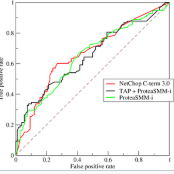In this paper, we propose TEDL, a two-stage learning approach to quantify uncertainty for deep learning models in classification tasks, inspired by our findings in experimenting with Evidential Deep Learning (EDL) method, a recently proposed uncertainty quantification approach based on the Dempster-Shafer theory. More specifically, we observe that EDL tends to yield inferior AUC compared with models learnt by cross-entropy loss and is highly sensitive in training. Such sensitivity is likely to cause unreliable uncertainty estimation, making it risky for practical applications. To mitigate both limitations, we propose a simple yet effective two-stage learning approach based on our analysis on the likely reasons causing such sensitivity, with the first stage learning from cross-entropy loss, followed by a second stage learning from EDL loss. We also re-formulate the EDL loss by replacing ReLU with ELU to avoid the Dying ReLU issue. Extensive experiments are carried out on varied sized training corpus collected from a large-scale commercial search engine, demonstrating that the proposed two-stage learning framework can increase AUC significantly and greatly improve training robustness.
翻译:在本文中,我们建议采用TEDL,这是在分类任务中深层学习模型的不确定性量化的两阶段学习方法,我们借鉴了我们在实验Evice Deeplearning(EDL)方法(Empster-Shafer(Empster-Shafer)方法(Empster-Shafer(Empster-Shafer)方法)的研究结果,这是最近根据Dempster-Shafer理论提出的不确定性量化方法。更具体地说,我们发现EDLLL(ELU)往往产生低劣的AUC(AU),而这种模型是交叉性损失的模型,在培训中高度敏感。这种敏感性可能造成不可靠的不确定性估计,使其在实际应用中具有风险。为了减少这两种限制,我们建议基于我们对造成这种敏感性的可能原因的分析,采取简单而有效的两阶段学习方法。我们建议采用一种简单而有效的两阶段学习方法,先从交叉的人类损失中学习,然后从EDLU(ELU)学习第二阶段学习,我们又用EL(ELU)取代了ELU(ELU)来避免Dying ReLU)来避免Dying ReLU(DLU)问题。在大型商业搜索中进行广泛试验,以大型的多种规模的训练。我们从大型搜索收集的试验,表明AUCUUUUUUC能够大大和大大和大大提高训练能力。


